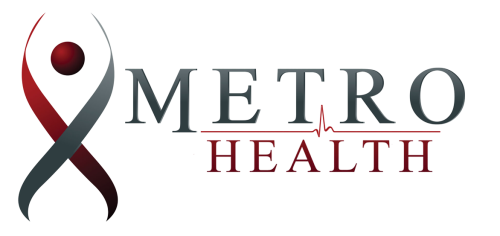October is Breast Cancer Awareness Month and the ideal time to learn how a healthy diet can
help lower your risk of developing the most common cancer — breast cancer — which affects 1
in 8 in women and some men.
While some risk factors are out of your control, including age, family history, genetics and breast
density, the good news is that eating well and other healthy lifestyle choices can help lower your
risk of breast cancer.
Breast Cancer in Senior Women
Women of any age can be affected by breast cancer, but the risk of breast cancer increases
with age. Nearly one-third of all new breast cancer cases occur in women 70 and older, and 1 in
24 women in this age group will develop breast cancer in her lifetime, according to the National
Cancer Institute.
Eating Well to Prevent Breast Cancer
Making good food choices can’t prevent breast cancer (or any cancer) entirely, but eating a
balanced diet offers many health benefits and may lower your risk of breast cancer. There are
many studies exploring the link between diet and breast cancer risk. Though there is no specific
diet to follow, incorporating certain foods into your diet may help prevent breast cancer,
including cruciferous vegetables, berries and citrus, legumes and soy, and omega-3 fatty fish,
among others
Cruciferous Vegetables
All vegetables are good for your health, but cruciferous vegetables are rich in nutrients and
cancer-fighting properties. Cruciferous vegetables help reduce inflammation, prevent cell
damage, and deactivate cancer-causing substances (carcinogens). Cruciferous vegetables
include:
- Arugula
- Bok choy
- Broccoli and broccoli sprouts
- Brussels sprouts
- Cauliflower
- Cabbage
- Kale
- Watercress
Cruciferous Vegetables
Fruits are rich in many cancer-fighting nutrients, including antioxidants, folate, vitamin C, fiber
and polyphenols. One 2018 study found that regular fruit consumption may significantly lower a
woman’s risk of breast cancer. Berry and citrus fruits include:
- Blackberries
- Blueberries
- Clementines
- Cranberries
- Elderberries
- Grapefruit
- Lemon
- Lime
- Oranges
- Tangerines
Legumes and Soy
Studies show that eating a diet rich in soybeans and soy products is beneficial for breast health.
Soy contains fiber, isoflavones and plant estrogens (phytoestrogens) that may protect against
certain types of breast cancer.
Other beans and legumes like lentils are rich in antioxidants, saponins and soluble fiber that are
also known to have anti-cancer properties. Legumes and soy-based products include:
- Beans (black beans, kidney beans, chickpeas)
- Edamame
- Peas
- Lentils
- Peanuts
- Tofu
- Soy milk
Fatty Fish
A research review found that women who eat high amounts of fatty fish have a 14% lower risk
of breast cancer. Certain types of fatty fish contain omega-3 fatty acids and antioxidants that
help reduce inflammation, boost immunity and may help protect against certain types of
cancers. Adding fatty fish to your diet 2 to 3 times a week may support your breast health.
Types of healthy fatty fish include:
- Salmon
- Haddock
- Mackerel
- Mahi mahi
- Rainbow trout
- Tilapia
- Tuna
Herbs and Spices
Herbs and spices do more than just enhance the flavor of foods. Many contain high amounts of
beneficial nutrients, including antioxidants, flavonoids and vitamins that may help lower your risk
breast cancer. Flavoring your foods with herbs and spices can also help decrease the use of
sodium, sugar and unhealthy fats, increasing the health benefits of the foods you eat.
Herbs and spices with known cancer-fighting properties include:
- Black pepper
- Cayenne pepper
- Cinnamon
- Cumin
- Dill
- Garlic
- Ginger
- Rosemary
- Oregano
- Thyme
- Turmeric
Green Tea
Tea drinkers rejoice: Drinking green tea each day may protect against breast cancer. Green tea
is rich in compounds and antioxidants that have been shown to reduce inflammation and
destroy harmful free radicals.
Researchers are exploring how much green tea people should consume each day for the anti-
cancer benefits, but evidence suggests that daily consumption may help lower your risk of
breast cancer.
Maintain a Healthy Weight to Prevent Breast Cancer
Eating a healthy, well-balanced diet not only ensures your body gets the nutrients it needs, but
also helps lower your risk of breast cancer. This is particularly important after menopause.
Research shows that postmenopausal women who are overweight or obese have a 30% higher
risk of breast cancer compared to women who are not overweight.
The Bottom Line
Making changes to the way you eat can be challenging, but worth the effort. Remember you
don’t have to change the way you eat all at once. Setting 1 or 2 goals each week to eat healthy
foods can add up to big changes over time. Eating a healthy diet is beneficial not only for your
breast health, but your overall health and wellbeing.

